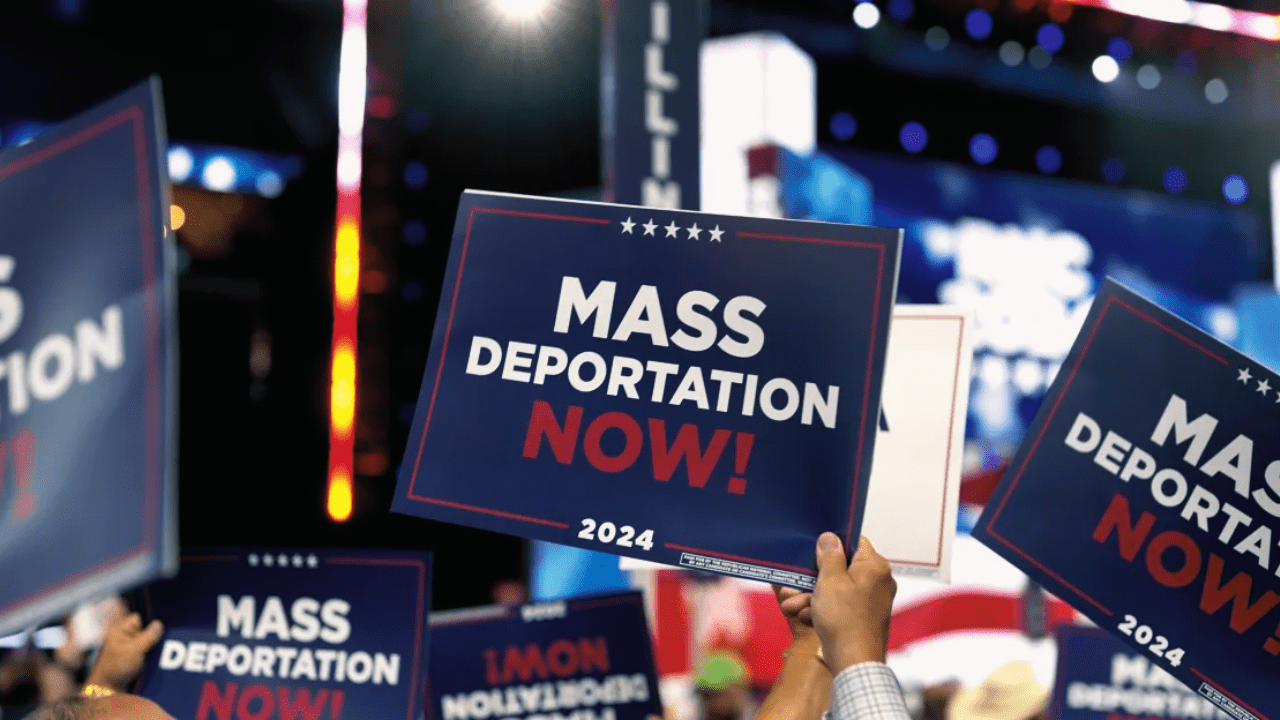The U.S. is experiencing a surge in immigration enforcement actions, including mass deportations and heightened border security measures, amid public concern regarding the number of unauthorized immigrants in the country. These actions have had significant economic, social, and political implications affecting individuals, families, and the U.S. economy, dividing public opinion. The scale of deportations could lead to heavy social and economic costs including household income reduction, labor market disruption, and resource strain. U.S. policymakers must consider both immediate enforcement goals and long-term consequences, exploring comprehensive solutions that address border security, economic needs, and humanitarian concerns.
Recent executive actions have initiated large-scale deportation operations, marking a significant shift in U.S. immigration policy. On January 20th, 2025, the inauguration day of the 47th president of the United States, Donald Trump, the White House issued an executive order stating their goal to remove individuals unlawfully residing in the country to prioritize the safety and security of American citizens. On the night of January 23rd, White House Press Secretary Karoline Leavitt stated in an X post that the Trump administration arrested 538 illegal immigrant criminals including an alleged terrorist, members of gangs, and those convicted of sexual crimes.
However, these efforts have sparked significant concern across the United States, particularly due to the increased deportation of individuals who are not criminals, alongside the removal of restrictions on U.S Immigration and Customs Enforcement (ICE) in houses of worship, schools, and hospitals. Critics warn that such measures can erode trust within communities and create fear in spaces traditionally regarded as safe havens. The order to “take appropriate action to repel, repatriate, or remove any alien engaged in the invasion” has intensified fears of overreach (Barrow, 2025). This has generated widespread debate about human rights, economic stability, and social cohesion. The scale of these actions, the methods employed, and potential long-term consequences necessitate a thorough evaluation of the current enforcement approach.
To understand the current immigration issues, it is essential to examine the historical evolution of U.S. immigration policy. The 20th century brought significant changes to immigration, including restrictive quotas under the National Origins Act of 1924, mass deportations during the Great Depression, and reforms like the Immigration and Nationality Act of 1965, ending racial quotas but contributing to undocumented migration. In the 21st century, the post-9/11 era saw heightened border security and law enforcement. The Obama administration implemented the Deferred Action for Childhood Arrivals (DACA) program, offering temporary protection for undocumented immigrants brought to the U.S. as children, but also earned criticism for record-high deportations. The following Trump administration took a hardline approach, increasing border enforcement, attempting to end DACA, and issuing travel bans targeting certain countries. Subsequently, the Biden Administration reversed some Trump-era policies but faced challenges like significant border crossings and ongoing debates about asylum rights (Baxter et al.).
Approximately 11 million unauthorized immigrants reside in the U.S. today, including 8.3 million in the workforce and 4.4 million U.S.-born children living with at least one undocumented parent (Passel et al., 2024). The current U.S. immigration situation is marked by unprecedented deportation operations under the Trump administration, described as the “largest massive deportation operation in history.” Daily arrests target both undocumented immigrants and those with pending legal cases, including asylum seekers, with military aircraft used for deportations.
These deportation policies risk destabilizing key sectors like agriculture, construction, and hospitality, exacerbating labor shortages. Additionally, mass deportations could lead to significant economic losses, with a potential 6.8% GDP reduction ($1.7 trillion), and disrupt mixed-status families, plunging many of them into poverty (Warren et al., 2017). Furthermore, critics emphasize the great costs of enforcement–estimated at over $167 billion for large-scale operations.
A continuation of mass deportations is likely to come at a great economic, social, and human cost, causing family separations, workforce disruptions, and widespread fear in immigrant communities. This also increases the risk of human rights violations and legal challenges.
As an immediate and prioritized action over the next 1 to 2 years, deportation should be focused on individuals with serious criminal records who pose a clear threat to public safety. Simultaneously, pathways for unauthorized immigrants to obtain legal status, such as those with long-term residency, strong family ties, or essential economic roles, should be developed and implemented. This approach would reduce the strain on enforcement resources and allow for the integration of law-abiding, contributing members of society. Resistance to such policies is possible by those preferring stricter policies but is outweighed by the potential for reduced recidivism, lower crime rates, increased economic contributions, and labor market stability.
Along with this, the root causes of migration must be addressed which will require a long-term commitment over the next 5 to 10 years. This involves coordination with neighboring countries and international organizations to tackle poverty, violence, political instability, and economic hardships in migrants’ home countries. Efforts would include diplomacy, development aid, and regional partnerships to reduce the necessity for migration. Although this approach may be costly and time-intensive, if implemented carefully, it could lead to greater stability in neighboring regions, a reduction in unauthorized immigration, and improved international relations over time.
Mass deportations in the U.S. under the current immigration enforcement approach pose significant challenges, disrupting families, communities, and the economy. These actions emphasize the need for a balanced strategy that prioritizes immediate targeted enforcement, long-term solutions addressing root causes, and the development of legal pathways for integration. By focusing on humane and sustainable practices, this approach can mitigate the economic and social harm of mass deportation while ensuring long-term stability.

